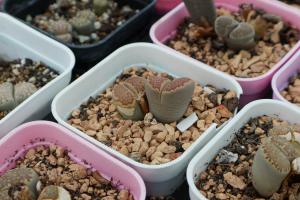Why would a freshwater plant die in ocean water?
Freshwater plants are adapted to living in environments with low salt levels, while ocean water is significantly more salty. This difference in salt concentration can cause freshwater plants to die if they are exposed to ocean water for a sustained period of time. There are several reasons why this happens.
1. Osmosis
Osmosis is the movement of water from an area of low salt concentration to an area of high salt concentration. When freshwater plants are placed in ocean water, water from the plant cells will move out into the surrounding water, causing the cells to shrink and eventually die. In addition, the uptake of salt by the plant can disrupt the balance of ions within the cell, leading to further damage.
2. Ion toxicity
The salt in ocean water contains high levels of sodium and chloride ions, which can be toxic to freshwater plants. When these ions are taken up by the plant, they can interfere with normal cellular processes and cause damage to the cell membrane. This can lead to a breakdown of the plant's internal structure and ultimately, to its death.
3. Lack of essential nutrients
Freshwater plants require a different set of nutrients than those found in ocean water. While ocean water does contain some of the nutrients that freshwater plants need, it may not contain them in sufficient quantities. Over time, the plant may become starved for these essential nutrients and begin to wither and die.
4. Competition with saltwater organisms
In addition to the challenges posed by osmosis, ion toxicity, and nutrient availability, freshwater plants may also struggle to compete with other organisms in ocean water. Saltwater fish, invertebrates, and other organisms may consume or outcompete the plant, making it difficult for it to survive in this new environment.
Conclusion
While some freshwater plants may be able to tolerate limited exposure to ocean water, prolonged exposure or immersion can be fatal. The mechanisms by which saltwater can harm freshwater plants are complex, but ultimately come down to the fact that these plants are not adapted to living in high-salinity environments. Understanding these challenges can help us better appreciate the delicacy and adaptability of freshwater ecosystems, and the importance of protecting them from human impacts and climate change.

 how many times do yo...
how many times do yo... how many planted tre...
how many planted tre... how many pine trees ...
how many pine trees ... how many pecan trees...
how many pecan trees... how many plants comp...
how many plants comp... how many plants can ...
how many plants can ... how many plants and ...
how many plants and ... how many pepper plan...
how many pepper plan...































